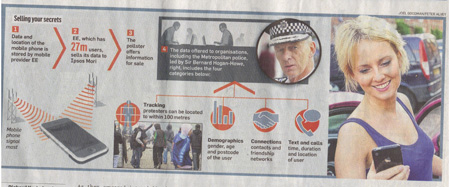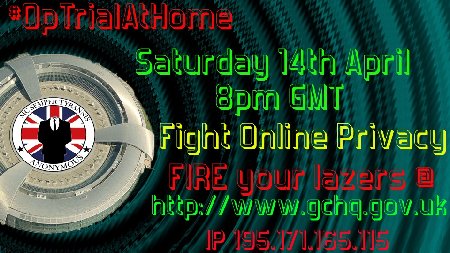Unsurprisingly for the self confesses "I am not technical" former Home Secretary, Theresa May has used her Statement following the London Bridge
and Borough Market attacks, to renew her nonsense about alleged "Safe Spaces" for islamist extremism
on the Internet and at Home.
8 minutes video clip of Theresam May's statement:
https://www.youtube.com/watch?v=jcRj5qNDOFg
PM statement following London terror attack: 4 June 2017
Last night, our country fell victim to a brutal terrorist attack once again. As a result I have just chaired a meeting of the government’s emergency committee and I want to update you with the latest information about the attack.Shortly before 10:10 yesterday evening, the Metropolitan Police received reports that a white van had struck pedestrians on London Bridge. It continued to drive from London Bridge to Borough Market, where 3 terrorists left the van and attacked innocent and unarmed civilians with blades and knives.
All 3 were wearing what appeared to be explosive vests, but the police have established that this clothing was fake and worn only to spread panic and fear.
As so often in such serious situations, the police responded with great courage and great speed. Armed officers from the Metropolitan Police and the City of London Police arrived at Borough Market within moments, and shot and killed the 3 suspects. The terrorists were confronted and shot by armed officers within 8 minutes of the police receiving the first emergency call.
8 minutes is the length of Theresa May's statement. Ignore all the gun nuts who pretend that arming individual policemen would have killed the attackers any quicker.
Seven people have died as a result of the attack, in addition to the 3 suspects shot dead by the police. Forty-eight people are being treated in several hospitals across London. Many have life-threatening conditions.On behalf of the people of London, and on behalf of the whole country, I want to thank and pay tribute to the professionalism and bravery of the police and the emergency services - and the courage of members of the public who defended themselves and others from the attackers. And our thoughts and prayers are with the victims and with their friends, families and loved ones.
This is, as we all know, the third terrorist attack Britain has experienced in the last 3 months. In March, a similar attack took place, just around the corner on Westminster Bridge. Two weeks ago, the Manchester Arena was attacked by a suicide bomber. And now London has been struck once more.
And at the same time, the security and intelligence agencies and police have disrupted 5 credible plots since the Westminster attack in March.
In terms of their planning and execution, the recent attacks are not connected. But we believe we are experiencing a new trend in the threat we face, as terrorism breeds terrorism, and perpetrators are inspired to attack not only on the basis of carefully-constructed plots after years of planning and training - and not even as lone attackers radicalised online - but by copying one another and often using the crudest of means of attack.
That must mean that the terrorist suspects have been identified between Commissioner of Police for the Metropolis Cressida Dick's statement earlier today that she
and Theresa May's statement, or is this just political licence with the facts ?
We cannot and must not pretend that things can continue as they are. Things need to change, and they need to change in 4 important ways.First, while the recent attacks are not connected by common networks, they are connected in one important sense. They are bound together by the single, evil ideology of Islamist extremism that preaches hatred, sows division, and promotes sectarianism. It is an ideology that claims our Western values of freedom, democracy and human rights are incompatible with the religion of Islam. It is an ideology that is a perversion of Islam and a perversion of the truth.
Defeating this ideology is one of the great challenges of our time. But it cannot be defeated through military intervention alone. It will not be defeated through the maintenance of a permanent, defensive counter-terrorism operation, however skilful its leaders and practitioners. It will only be defeated when we turn people’s minds away from this violence - and make them understand that our values - pluralistic, British values - are superior to anything offered by the preachers and supporters of hate.
All very true, exactly what previous Prime Ministers e.g. Tony Blair have said time and time again
Second, we cannot allow this ideology the safe space it needs to breed. Yet that is precisely what the internet - and the big companies that provide internet-based services - provide. We need to work with allied, democratic governments to reach international agreements that regulate cyberspace to prevent the spread of extremism and terrorist planning. And we need to do everything we can at home to reduce the risks of extremism online.
We need Safe Spaces for Internet Free Speech and to do Digital Commerce, free from snooping by evil governments, corporations, criminals and terrorists.
Trying to clamp down on foreign internet companies providing End To End Encrypted services wil not stop terrorist extremists from recruiting or planning. It will destroy Freedom of Speech and the UK Digital Economy, which needs all the help it can get to survive the #Brexit disaster.
Is the UK Government really willing to hand over intelligence watchlists of terrorist sympathiser unconvicted *suspects* to foreign internet companies like FaceBook or Twitter so that they can pro-actively censor their social media ?
That seems unlikely.
Third, while we need to deprive the extremists of their safe spaces online, we must not forget about the safe spaces that continue to exist in the real world. Yes, that means taking military action to destroy ISIS in Iraq and Syria. But it also means taking action here at home. While we have made significant progress in recent years, there is - to be frank - far too much tolerance of extremism in our country.So we need to become far more robust in identifying it and stamping it out - across the public sector and across society. That will require some difficult and often embarrassing conversations, but the whole of our country needs to come together to take on this extremism - and we need to live our lives not in a series of separated, segregated communities but as one truly United Kingdom.
Where exactly are these mythical "Safe Spaces" for islamist extremism in the Public Sector or in British Society ??
What precisely does she mean by "embarassing conversations", with whom ?
Fourth, we have a robust counter-terrorism strategy that has proved successful over many years. But as the nature of the threat we face becomes more complex, more fragmented, more hidden, especially online, the strategy needs to keep up. So in light of what we are learning about the changing threat, we need to review Britain’s counter-terrorism strategy to make sure the police and security services have all the powers they need.
We already have the most intrusive anti-terrorism legal powers in the world, including all encompassing Thought Crime laws, what more can they actually enforce properly ?
And if we need to increase the length of custodial sentences for terrorism-related offences, even apparently less serious offences, that is what we will do.
If there is little or no difference in the penalty for "serious" and "less serious" crimes, this will make it easier for terrorist recruiters to convert peripheral supporters into active terrorist atttackers - "in for a penny, in for a pound".
Again, this all sounds tediously familiar, just like previous Tory and labour governemts e.g. Tony Blair's ratcheting up of repressive terrorism laws.
Will the excerable Jeremy Corbyn and the current Labour control freaks also support this ?
Since the emergence of the threat from Islamist-inspired terrorism, our country has made significant progress in disrupting plots and protecting the public. But it is time to say enough is enough. Everybody needs to go about their lives as they normally would. Our society should continue to function in accordance with our values. But when it comes to taking on extremism and terrorism, things need to change.As a mark of respect the 2 political parties have suspended our national campaigns for today. But violence can never be allowed to disrupt the democratic process. So those campaigns will resume in full tomorrow. And the general election will go ahead as planned on Thursday.
How is standing outside 10 Downing Street with maximum media coverage, announcing new policies, "suspending campaigning" ??
Few people will believe that this is a genuine mark of respect, it is more likely an excuse for the politicians (in all political parties)
to avoid embarassing questions about their failed / lack of coherent policies regarding terrorism.
Allowing the terrorists to disrupt the General Election in any way, is a victory for the the ideology that the Prime Minister so rightly condemned above.
As a country, our response must be as it has always been when we have been confronted by violence. We must come together, we must pull together, and united we will take on and defeat our enemies.






























Recent Comments